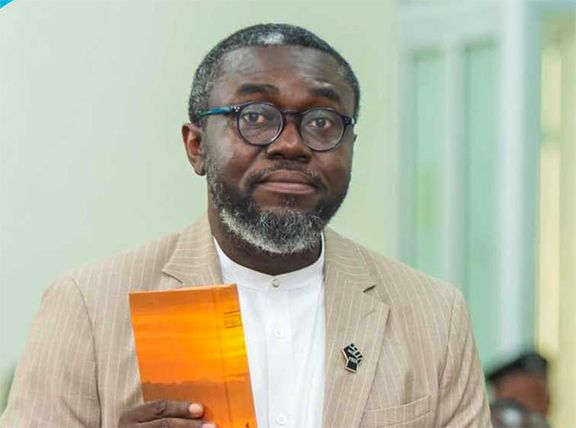The Democracy Hub, a pressure group advocating for good governance and accountability, is contemplating legal action against the Ghanaian government over its policy of deporting foreign nationals involved in illegal mining, locally known as “galamsey,” instead of prosecuting them. This policy, announced by Interior Minister Muntaka Mubarak, prioritizes the swift repatriation of foreign nationals engaged in galamsey back to their countries of origin, bypassing the judicial process within Ghana. The Minister stated that he had formally communicated this policy to the Attorney General and that deported individuals would be placed on a stop list, barring their re-entry into Ghana. This approach has sparked controversy, with critics arguing that it undermines the rule of law and creates a two-tiered system of justice, one for Ghanaians and another for foreigners.
The Democracy Hub, spearheaded by its lead convener, Oliver Barker Vormawor, contends that prosecution is essential for deterring illegal mining activities and upholding justice. They argue that deporting foreign nationals involved in galamsey without trial not only circumvents due process but also fails to hold these individuals accountable for the environmental and economic damage caused by their actions. The group questions the rationale behind deporting foreigners while Ghanaians involved in the same illegal activity face prosecution and imprisonment. This perceived disparity in treatment raises concerns about potential discrimination and the government’s commitment to applying the law equally to all individuals within its jurisdiction.
The crux of the Democracy Hub’s argument lies in the principle of equality before the law. They believe that all individuals, regardless of their nationality, should be subject to the same legal processes and consequences for engaging in illegal activities within Ghana. Deportation, in their view, serves as a lenient measure that fails to address the severity of the crime and may even encourage further illegal mining activities by creating a perception of impunity for foreign nationals. The group emphasizes the importance of holding all perpetrators accountable, both foreign and Ghanaian, to send a clear message that illegal mining will not be tolerated.
The government’s rationale for prioritizing deportation over prosecution may stem from various factors, including the cost and logistical challenges associated with prosecuting foreign nationals. The process of gathering evidence, securing interpreters, and navigating international legal complexities can be resource-intensive. Furthermore, the government might perceive deportation as a more expedient way to address the immediate problem of illegal mining by quickly removing foreign participants. However, critics argue that this approach sacrifices justice and accountability for expediency, ultimately undermining the long-term efforts to combat galamsey.
The potential legal action by the Democracy Hub raises fundamental questions about the government’s approach to tackling illegal mining. It highlights the tension between the desire for swift action and the imperative to uphold the rule of law. The outcome of this potential legal challenge could have significant implications for how Ghana deals with foreign nationals involved in illegal activities within its borders and could set a precedent for future cases involving similar circumstances. It also underscores the importance of public discourse and advocacy in holding governments accountable and ensuring that policies are consistent with principles of justice and equality.
The debate surrounding the government’s policy reflects a broader concern about the effectiveness of current strategies to combat illegal mining in Ghana. Galamsey has devastating consequences for the environment, including water pollution, deforestation, and land degradation. It also poses significant social and economic challenges, impacting local communities and the national economy. The government’s decision to deport foreign nationals involved in galamsey is just one piece of a complex puzzle, and the ongoing debate highlights the need for a comprehensive and multi-faceted approach to address this pressing issue. A successful strategy will likely require a combination of law enforcement, community engagement, economic development initiatives, and international cooperation to effectively combat illegal mining and its detrimental effects.


